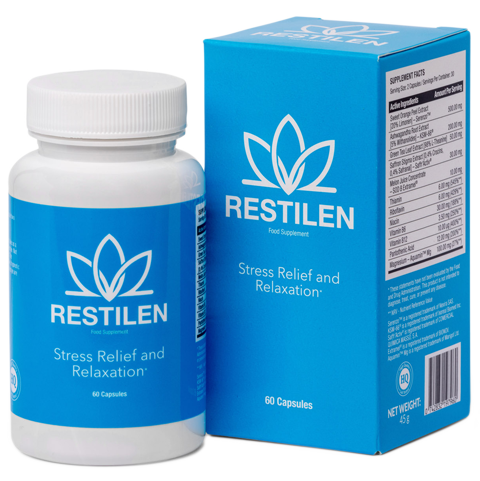There are six ways to enhance your mental wellness.
According to a recent University of Alabama at Birmingham study, the pandemic increased the prevalence of people with depression or anxiety symptoms in America substantially — from about 11 percent of people in 2019 to close to 40 percent in 2021.
May is National Mental Health Awareness Month. UAB experts offer six suggestions for improving your mental health.
Constantly listening to the news and/or cable talk shows will only add to one’s anxiety in times of an outbreak or disaster, said Laura Dreer, Ph.D., a clinical psychologist in the UAB Department of Ophthalmology and Vision Sciences. "While it’s important to stay updated, limiting updates to once a day will help you stay more in the moment and lower your stress levels." This is particularly important for parents with young children and to be mindful of keeping the news to a minimum.
Streamline incoming news by picking a few reputable sources rather than relying on potentially unreliable social media.
Set boundaries for discussion topics
Often, loved ones ask well-intentioned—or even targeted—questions that can be triggering, invasive, or uncomfortable, and dodging conversations can feel overwhelming to those affected.
Dayna M. Watson, Ph.D., assistant professor in the UAB School of Education’s Counseling program, explains that preparing statements can help to set meaningful and realistic boundaries.
Write out and practice a few short statements that express boundaries. While it may be tempting to try to beat around the bush or sugarcoat attempts at establishing healthy boundaries to make it less upsetting for the other person, it is best to keep boundary statements short, respectful, and clear:
"That is not something I am open to discussing today."
"Please do not say things like that to me or around my children."
Phrases like these can go a long way towards communicating where the boundary is. In some situations where repeated attempts to draw healthy boundaries are made and a loved one continues to cross that line, it may be best to plan ahead to limit the amount of time at events that include the individuals or to gracefully exit the event if it becomes an issue in the moment.
Read a book
Read a positive book, a murder mystery, or even a manual, as reading has proven health benefits. According to Scholastic, regular reading can decrease stress levels by up to 68 percent and can lengthen one's life by up to two years.
Get enough sleep.
Another great way to improve mental health is to increase the number of hours and quality of sleep.
"It can be tempting to stay up late, especially when there is a long to-do list," Watson said. But practicing good sleep hygiene can be a great tool to manage stress.
According to the UAB Medicine Sleep/Wake Disorders Center, sleep-promoting behaviors include:
No electronics one to three hours before bedtime. Electronics interrupt physiological sleep mechanisms and stimulate the brain. If you must be on your computer or phone at night, wear glasses that block blue light.
A more sleep-friendly environment that may include dimmer lights, a cooler temperature, and no television. Patterson says it is best to have a comfortable mattress and pillow, with no dogs, cats, or children in the bed.
Avoid heavy meals late in the evening. Indigestion and heartburn can interrupt sleep.
Avoid caffeine three to four hours before turning out the lights, and no alcohol, nicotine, or marijuana one to three hours before sleep. Insomnia is a primary sleep disorder in the United States, and these stimulants can prevent people from falling asleep.
Daytime exercise Even a small amount of daily aerobic exercise can improve sleep quality.
a consistent bedtime. Shift workers have an especially hard time with this, but those on routine nights do better than those who do rotating shifts.
Practice mindfulness.
"Mindfulness means being fully present in the moment," Dreer said. "It is easy for many of us to get caught up in things that have happened in the past or in the future while missing out on living in the present."
Combat the pinging notifications and things vying for attention by practicing a bit of mindfulness at the start or end of your day—or even as a lunchtime break. Check out mindfulness platforms and apps that are easily accessible to practice meditation or breathing.
Add stretching to a fitness routine.
Stretching is popular in fitness programs, athletic preparations, and injury rehabilitation and is beneficial for several muscle conditions. It is known to lessen stress, relieve headaches and backaches, and increase muscle flexibility and bone strength.
When stretching, UAB Medicine’s Orthopedic Services says the important things to consider are:
Make sure the muscles are warm and pliable before pushing them to the limits of their range of motion. As part of a dynamic warm-up, that may include walking or very light jogging prior to going through a full functional stretching regimen.
correct technique.
Once progress is made and a more aggressive stretching routine begins, remember that correct technique is a top priority. Work closely with a strength and conditioning professional whenever possible to perfect form before moving to advanced levels.
Focus on the major areas of the body that help with mobility. These areas include calves, hamstrings, hips, and thighs. For upper-body relief, use moves that stretch the shoulders, neck, and lower back.
Make the body’s muscles work, but do not stretch until it hurts.
Proper stretches should never cause pain.
Know your body’s limits. According to UAB Orthopaedics, some research has shown that stretching the muscles before they are warmed up can cause damage. Exercising first gets blood flowing to muscle tissue, making it pliable. However, that applies only to light physical activity, such as a quick walk, before stretching.
A recent study from the University of Alabama at Birmingham found that the pandemic markedly boosted the proportion of Americans who experience symptoms of sadness or anxiety, going from roughly 11 percent of the population in 2019 to close to 40 percent in 2021.
National Mental Health Awareness Month occurs every May. Six recommendations for enhancing your mental health are made by UAB experts.
According to Laura Dreer, Ph.D., a clinical psychologist in the UAB Department of Ophthalmology and Vision Sciences, listening to the news and/or cable talk shows nonstop will only increase one's worry in times of an outbreak or tragedy. While being updated is crucial, limiting updates to once per day will allow you to live in the present and reduce stress. Parents of small children should pay special attention to this and be careful to limit their exposure to the news.
Instead of relying on possibly unreliable social media, streamline incoming news by choosing a few dependable sources.
Establish parameters for debate subjects
Dodging conversations can feel overwhelming to those impacted since loved ones frequently pose well-intentioned—or sometimes specifically targeted—questions that can be upsetting, intrusive, or triggering.
The UAB School of Education's Counseling program's assistant professor Dayna M. Watson, Ph.D., argues that creating statements can aid in establishing meaningful and practical boundaries.
Create a few brief statements that express boundaries and practice them. While it may be tempting to avoid the subject or downplay attempts to create healthy boundaries in an effort to make it less distressing for the other person, it is best to maintain boundary declarations succinct, courteous, and unambiguous:
"That is not something I am willing to talk about right now."
Please refrain from addressing me or my children in such a manner.
These sorts of expressions can be quite helpful in defining the boundaries. It may be preferable to make advance plans to minimize the amount of time at activities that include the individuals or to gracefully leave the event if it becomes an issue in the present when repeated attempts to set healthy boundaries are made and a loved one continues to cross that line.
Open a book.
Reading has numerous established health advantages, so try a motivational book, a murder mystery, or even a manual. According to Scholastic, frequent reading can increase life expectancy by up to two years and reduce stress levels by up to 68 percent.
Get adequate rest.
Increasing sleep duration and quality is a fantastic strategy to boost mental wellness.
When there is a lot to do, it can be tempting to stay up late, according to Watson. But using excellent sleep hygiene as a technique to manage stress can be quite effective.
The UAB Medicine Sleep/Wake Disorders Center lists these actions as sleep-promoting behaviors:
One to three hours before night, avoid using devices. Electronics disrupt the body's natural sleep cycles and activate the brain. If you must use your phone or computer after dark, put on some blue-light-blocking eyewear.
A setting that is more conducive to sleep, possibly with cooler temperatures, dimmer lights, and no television. According to Patterson, it is better to have a soft mattress and pillow, as well as no kids, pets, or other people sharing the bed.
Avoid eating large meals after dinner. Heartburn and indigestion can keep you up at night.
Three to four hours before going to bed, stay away from caffeine, and one to three hours before bed, avoid alcohol, nicotine, and marijuana. These stimulants can keep people from falling asleep, and insomnia is the most common sleep condition in the US.
Daytime workout A little bit of aerobic activity every day can enhance sleep quality.
a regular bedtime. Shift workers struggle with this in particular, but those who work regular evenings fare better than those who work changing shifts.
Engage in mindfulness.
Being fully present in the moment is what Dreer defined as mindfulness. Many of us find it simple to become preoccupied with events from the past or the future, foregoing the opportunity to experience the present.
By engaging in some mindfulness at the beginning or end of your day—or even during your lunch break—you can fight the pinging notifications and other things clamoring for your attention. Visit easily accessible mindfulness websites and applications to practice breathing exercises or meditation.
Include stretching in your exercise regimen.
Stretching is used in fitness regimens, athletic warm-ups, and injury recovery and is advantageous for a number of muscular problems. It is well known for reducing stress, easing headaches and backaches, and boosting bone and muscle strength.
The following are crucial points to keep in mind when stretching, according to UAB Medicine's orthopedic services:
Before stretching the muscles to the very edge of their range of motion, make sure they are warm and flexible. Performing some brief jogging or walking as part of a dynamic warm-up could be included before performing a complete set of functional stretches.
correct method.
Once progress is made and an active stretching regimen starts, keep in mind that proper technique is crucial. Before advancing to more difficult levels, whenever possible, fine-tune your form under the guidance of a strength and conditioning specialist.
Concentrate on the primary body parts that aid in mobility. These regions consist of the thighs, hips, hamstrings, and calves. Stretching exercises for the shoulders, neck, and lower back can provide comfort for the upper body.
Make the muscles in the body work, but avoid stretching till it hurts.
Stretching properly should never hurt.
Know the boundaries of your body. Research has indicated that extending muscles before they have warmed up can be harmful, according to UAB Orthopaedics. Getting blood circulating to muscular tissue during exercise makes it more flexible. That only applies to brief physical activity prior to stretching, such a fast walk.
A recent study from the University of Alabama at Birmingham found that the pandemic markedly boosted the proportion of Americans who experience symptoms of sadness or anxiety, going from roughly 11 percent of the population in 2019 to close to 40 percent in 2021.
National Mental Health Awareness Month occurs every May. Six recommendations for enhancing your mental health are made by UAB experts.
According to Laura Dreer, Ph.D., a clinical psychologist in the UAB Department of Ophthalmology and Vision Sciences, listening to the news and/or cable talk shows nonstop will only increase one's worry in times of an outbreak or tragedy. While being updated is crucial, limiting updates to once per day will allow you to live in the present and reduce stress. Parents of small children should pay special attention to this and be careful to limit their exposure to the news.
Instead of relying on possibly unreliable social media, streamline incoming news by choosing a few dependable sources.
Establish parameters for debate subjects
Dodging conversations can feel overwhelming to those impacted since loved ones frequently pose well-intentioned—or sometimes specifically targeted—questions that can be upsetting, intrusive, or triggering.
The UAB School of Education's Counseling program's assistant professor Dayna M. Watson, Ph.D., argues that creating statements can aid in establishing meaningful and practical boundaries.
Create a few brief statements that express boundaries and practice them. While it may be tempting to avoid the subject or downplay attempts to create healthy boundaries in an effort to make it less distressing for the other person, it is best to maintain boundary declarations succinct, courteous, and unambiguous:
"That is not something I am willing to talk about right now."
Please refrain from addressing me or my children in such a manner.
These sorts of expressions can be quite helpful in defining the boundaries. It may be preferable to make advance plans to minimize the amount of time at activities that include the individuals or to gracefully leave the event if it becomes an issue in the present when repeated attempts to set healthy boundaries are made and a loved one continues to cross that line.
Open a book.
Reading has numerous established health advantages, so try a motivational book, a murder mystery, or even a manual. According to Scholastic, frequent reading can increase life expectancy by up to two years and reduce stress levels by up to 68 percent.
Get adequate rest.
Increasing sleep duration and quality is a fantastic strategy to boost mental wellness.
When there is a lot to do, it can be tempting to stay up late, according to Watson. But using excellent sleep hygiene as a technique to manage stress can be quite effective.
The UAB Medicine Sleep/Wake Disorders Center lists these actions as sleep-promoting behaviors:
One to three hours before night, avoid using devices. Electronics disrupt the body's natural sleep cycles and activate the brain. If you must use your phone or computer after dark, put on some blue-light-blocking eyewear.
A setting that is more conducive to sleep, possibly with cooler temperatures, dimmer lights, and no television. According to Patterson, it is better to have a soft mattress and pillow, as well as no kids, pets, or other people sharing the bed.
Avoid eating large meals after dinner. Heartburn and indigestion can keep you up at night.
Three to four hours before going to bed, stay away from caffeine, and one to three hours before bed, avoid alcohol, nicotine, and marijuana. These stimulants can keep people from falling asleep, and insomnia is the most common sleep condition in the US.
Daytime workout A little bit of aerobic activity every day can enhance sleep quality.
a regular bedtime. Shift workers struggle with this in particular, but those who work regular evenings fare better than those who work changing shifts.
Engage in mindfulness.
Being fully present in the moment is what Dreer defined as mindfulness. Many of us find it simple to become preoccupied with events from the past or the future, foregoing the opportunity to experience the present.
By engaging in some mindfulness at the beginning or end of your day—or even during your lunch break—you can fight the pinging notifications and other things clamoring for your attention. Visit easily accessible mindfulness websites and applications to practice breathing exercises or meditation.
Include stretching in your exercise regimen.
Stretching is used in fitness regimens, athletic warm-ups, and injury recovery and is advantageous for a number of muscular problems. It is well known for reducing stress, easing headaches and backaches, and boosting bone and muscle strength.
The following are crucial points to keep in mind when stretching, according to UAB Medicine's orthopedic services:
Before stretching the muscles to the very edge of their range of motion, make sure they are warm and flexible. Performing some brief jogging or walking as part of a dynamic warm-up could be included before performing a complete set of functional stretches.
correct method.
Once progress is made and an active stretching regimen starts, keep in mind that proper technique is crucial. Before advancing to more difficult levels, whenever possible, fine-tune your form under the guidance of a strength and conditioning specialist.
Concentrate on the primary body parts that aid in mobility. These regions consist of the thighs, hips, hamstrings, and calves. Stretching exercises for the shoulders, neck, and lower back can provide comfort for the upper body.
Make the muscles in the body work, but avoid stretching till it hurts.
Stretching properly should never hurt.
Know the boundaries of your body. Research has indicated that extending muscles before they have warmed up can be harmful, according to UAB Orthopaedics. Getting blood circulating to muscular tissue during exercise makes it more flexible. That only applies to brief physical activity prior to stretching, such a fast walk.
FORGET ABOUT STRESS AND START LIVING TO THE FULLEST
Restilen is for everyone who has ever felt stress, anxiety or nervousness and wants to relieve the stress.
- Increases resistance to stress
- Helps maintain a positive mood
- Reduces stress symptoms
- Reduces fatigue and exhaustion
- Supports the maintenance of energy and vitality

Click the link to get more: https://nplink.net/lnc10h8c







Comments
Post a Comment